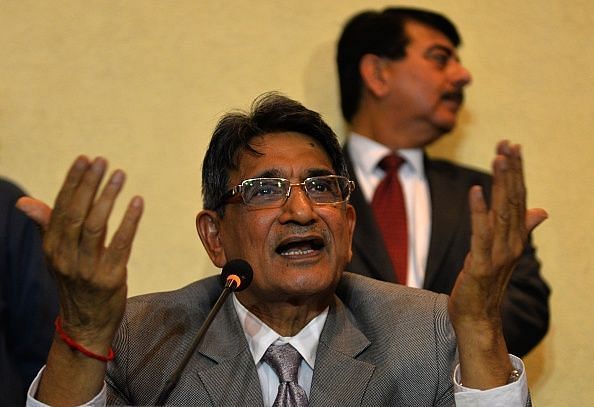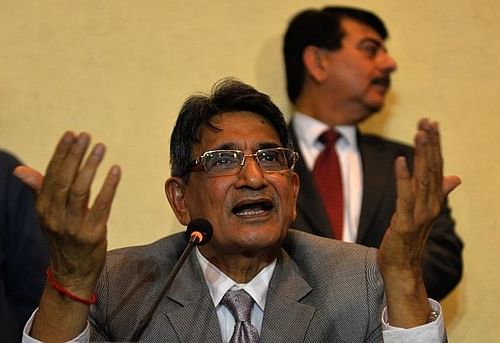
Law Commission seeks state associations' mandate for legalizing betting

A call is likely to be taken on the prospect of legalizing betting on cricket matches in India, with the Law Commission of India calling on the state associations of the BCCI to seek suggestions before submitting its report to the Supreme Court. The Law Commission had been directed by the Court, in accordance with the Lodha Panel recommendations, to study different aspects of legalizing betting in India.
A member secretary of the Law Commission, Sanjay Singh, in a letter addressed to the state associations said that betting and gambling have 'intertwining nature' and that the Commission would examine both these practices.
"While the Law Commission has been reaching out to the various stakeholders to seek their observations and suggestions, it considers that the views of your association will be valuable in formulating its recommendations on betting," Singh wrote in the letter.
"I would, therefore, request you to forward the views of the association on the matter to the Commission at the earliest, as we would like to submit our report in line with the directions of the Supreme Court, at an early date," the letter read.
The practices of betting and gambling have been engrossed in murky waters for long in India, especially after the match-fixing scandals that broke out in 2000 and most recently in 2013.
In fact, it was after the IPL spot-fixing scandal of 2013 that the Supreme Court had formed the three-member Lodha Committee to reform the BCCI's administrative practices.
The Committee in its report filed with the Supreme Court had stated, "It cannot be overlooked that the worldwide legal sports betting market is worth over 400 billion dollars. However, with the interest of cricket being foremost in our minds, it would always be necessary to protect and invoke transparency from those involved in the game."
The report, however, had mandated that strict framework be put in place to regulate the practices and the following safeguards be put in place: "a) Regulatory watchdogs would be necessary to ensure that the betting houses as well as those transacting there are strictly monitored, failing which their registrations would be susceptible to cancellation; b) The Players, Administrators and others closely associated with the sport would be required to furnish the details of their incomes and assets for the sake of transparency; c) Licenses would have to be issued to those placing the bets as well, with age and identification details recorded; d) Strict penal sanctions would have to be imposed on those transgressing the license and other requirements."
The chairman of the Law Committee, BS Chauhan, said that betting must be regulated through the enactment of a law and not a blanket ban.
"The response of the state in such a situation should be to regulate the activity, not seek to stop it completely," said Chauhan.
"Legalisation would give the government the opportunity to bring gambling out from the dark corners of society, impose controls and extract some revenue ... if betting were legal then a huge chunk of money that, at the moment, circulates only round the black market, would quickly become available," he added.